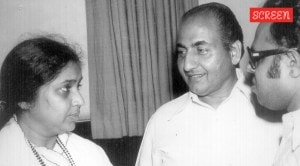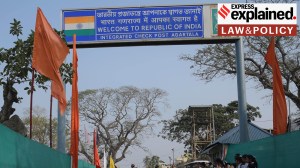What ails America
Michael Moore hopes his new film on the health system in US sickens you

Michael Moore and his films have always been hard to miss. But with Sicko, his acidic new documentary about healthcare, there’s less of the filmmaker and his usual methods.
Moore is foregoing the competition at this year’s Cannes Film Festival, where he won the top prize with 2004’s Fahrenheit 9/11. In Sicko, he isn’t chasing down insurance and pharmaceutical executives for confrontational interviews. The famously outsize filmmaker, having spent several years studying healthcare, has even lost 25 pounds. “One way to fight the system,” he says, “is to take better care of yourself.” But what’s most striking about Sicko is that Moore’s current target is much harder to pinpoint.
Whereas the foils of his earlier films were obvious—General Motors in Roger & Me, the gun industry in Bowling for Columbine, the Bush administration in Fahrenheit 9/11—the ultimate protagonist in Sicko is American indifference.
Although the film is filled with terrible medical outcomes—the movie opens with an uninsured carpenter with severed digits who must decide if he wants doctors to reattach his ring finger for $12,000 or his middle finger for $60,000—Sicko’s central thrust is to hold up models of superior, government-provided care in France, Canada and (in a twist that has landed Moore in hot water with the US Treasury Department) Cuba.
Among Sicko’s villains are politicians who pocket millions from HMOs and pharmaceuticals while denouncing universal care as little better than a communist plot. The film is particularly tough on Sen. Hillary Rodham Clinton, once an advocate for universal care and now among the healthcare industry’s biggest money recipients. (Moore says that Sicko distributor Harvey Weinstein, a longtime friend of the Clintons, asked him to cut the sequence but that he refused.)
To highlight the shortcomings of US healthcare, Moore focuses on the plight of several chronically ill September 11 rescue volunteers. Moore and the volunteers take a boat to Cuba. Despite its poverty, Moore says, Cuba’s healthcare system is a model for the Third World.
But what makes for one of Sicko’s most memorable sequences also sparked the wrath of the Treasury Department, which said the visit violated the Trading With the Enemy Act. “The lawyers are cautioning me to not treat this as a joke, which was my initial reaction.”
If the Cuba inquiry puts the spotlight back on Moore, the filmmaker says that wasn’t his intention. “I don’t need to convince the public that there is something wrong here,” he says. “I am hoping to inspire them in some way, to become active and to do something.”
John Horn (LAT-WP)
Photos



- 01
- 02
- 03
- 04
- 05



























